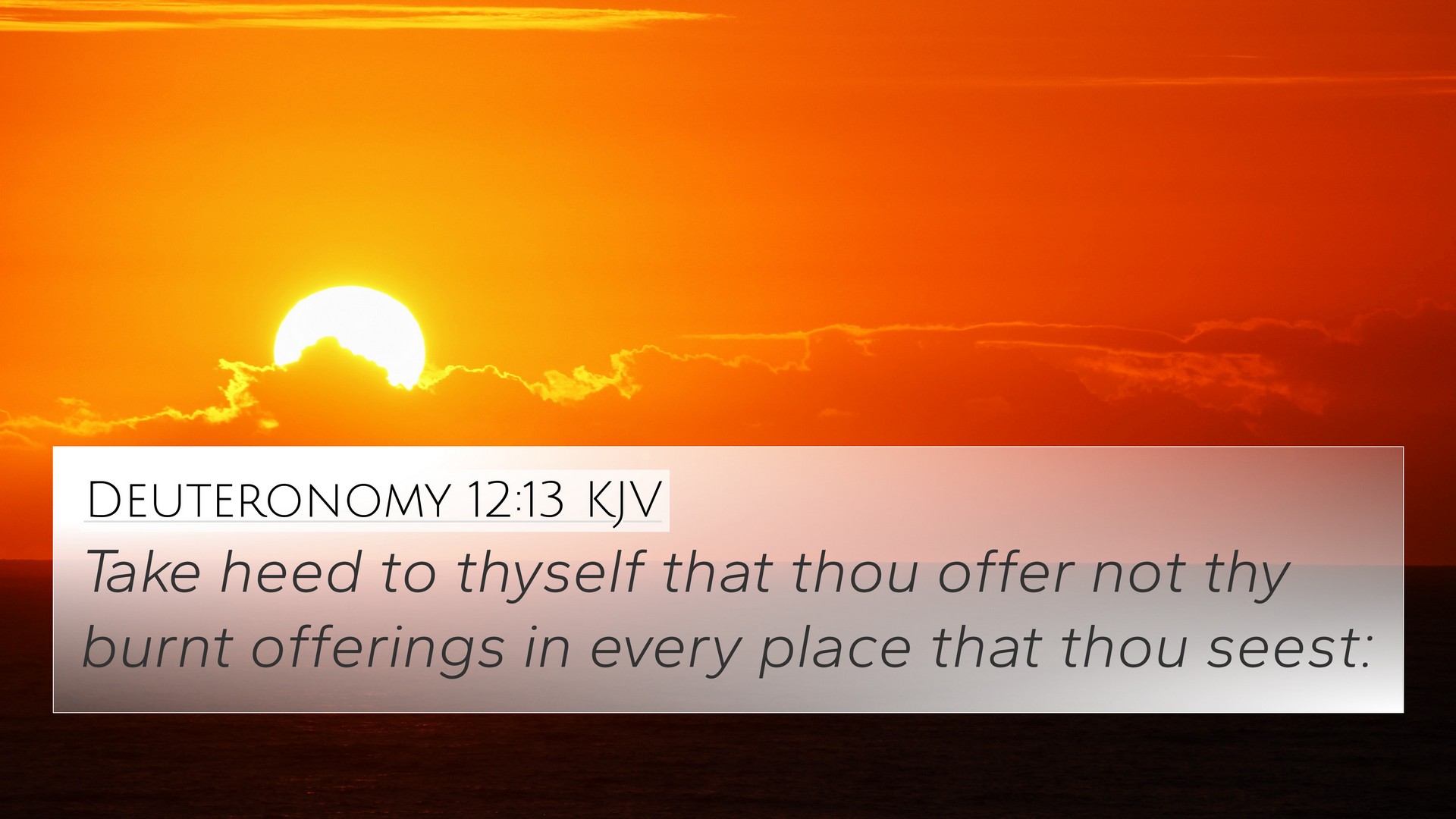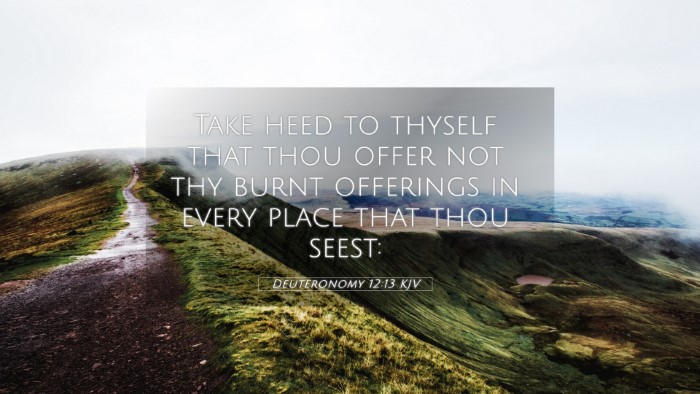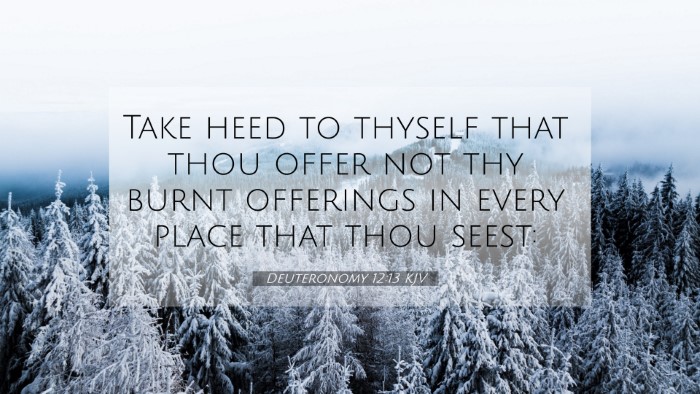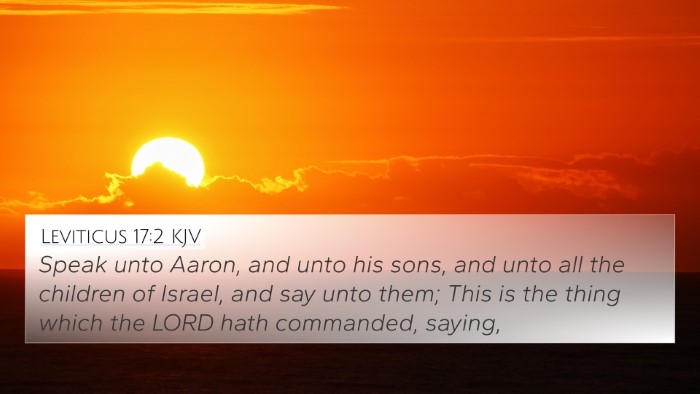Understanding Deuteronomy 12:13
Verse: "Take heed to thyself that thou offer not thy burnt offerings in every place that thou seest."
Deuteronomy 12:13 serves as part of a broader discourse regarding the worship practices that the Israelites were to follow upon entering the Promised Land. This particular instruction focuses on the proper location for offering sacrifices, emphasizing the importance of obeying Divine ordinances regarding worship.
Commentary Insights
Matthew Henry's Commentary
Matthew Henry elucidates that this verse warns the Israelites against the possibility of syncretism—blending their worship with the practices of the surrounding nations. He notes the significance of maintaining a distinct worship that is centered only in places appointed by God, which is crucial for the spiritual integrity of Israel.
Albert Barnes' Notes
Albert Barnes emphasizes the specific instruction for the Israelites to offer their burnt offerings only at the designated sanctuary, a foreshadowing of the centralized worship that would take place in Jerusalem. This was crucial to prevent the dilution of worship practices and to maintain the covenant relationship between God and His people.
Adam Clarke’s Commentary
Adam Clarke points out the necessity of adherence to God’s command regarding places of sacrifice, suggesting that disobedience could lead to spiritual degradation. He cautions that offering sacrifices in inappropriate locations could inadvertently endorse idolatrous practices of neighboring cultures.
Thematic Connections
This verse reflects a critical theme of obedience to God's commands regarding worship. It invites readers to consider how contemporary practices of worship may reflect or deviate from the biblical injunctions.
- Centralization of Worship: The emphasis on a specific location for offerings indicates a shift from localized, individual worship to a communal practice focused on the tabernacle and later the temple.
- Importance of Holiness: By adhering to God’s directives, Israel is called to maintain its identity as a holy people set apart for God—distinct from other nations.
- Prevention of Idolatry: The warning encapsulates a guiding principle against the adoption of foreign religious practices, preserving the integrity of Israelite worship.
Cross-References for Deuteronomy 12:13
This verse relates significantly to the following biblical passages:
- Exodus 20:24 - Establishes the principle of offering sacrifices at designated altars.
- Deuteronomy 12:5 - Commands the Israelites to seek the place where the Lord chooses to dwell.
- 2 Chronicles 7:12-16 - Confirms God’s chosen location for worship at the temple in Jerusalem.
- Leviticus 17:8-9 - Stipulates that offerings must be made in a specific place to prevent bloodshed and idolatry.
- 1 Kings 9:3 - Highlights God's assurance and conditions regarding the temple and worship.
- Isaiah 56:7 - Speaks of God’s house being a house of prayer for all nations.
- Matthew 26:2 - Jesus references His impending death and the importance of Jerusalem for sacrifice.
Application and Reflection
The directive found in Deuteronomy 12:13 challenges modern readers to ponder where and how they engage in worship. In a world filled with distractions and varying interpretations of faith practices, believers are encouraged to root their worship in the contexts provided by biblical teaching.
Biblical Cross-Referencing Tools
For those interested in exploring the interconnectedness of biblical texts further, numerous resources exist:
- Bible concordances to locate related Scripture passages.
- Bible cross-reference guides that systematically link thematically related verses.
- Tools that facilitate a cross-reference Bible study for deeper understanding.
Conclusion
Deuteronomy 12:13 not only serves as a historical instruction for ancient Israel but also carries a timeless message about the importance of worshiping God in truth, integrity, and obedience to His commands. The cross-references highlight a unified theme throughout Scripture encouraging believers to maintain a pure and distinct relationship with God.







